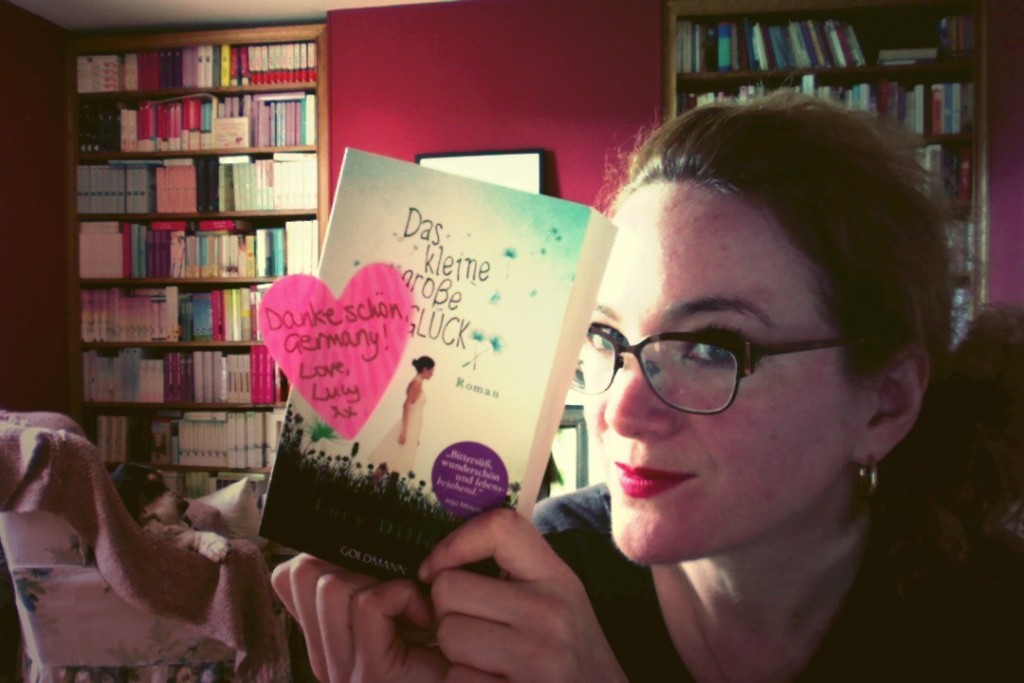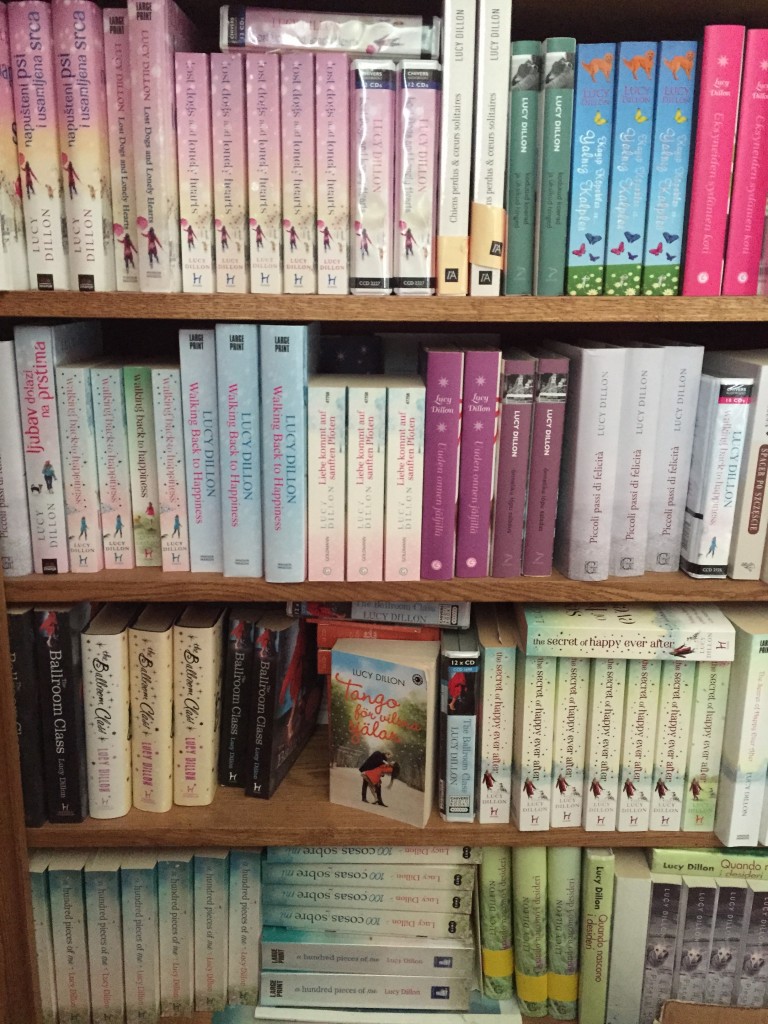Today’s big hello is to German readers – danke schön, Deutschland, for all the copies of A Hundred Pieces of Me, or more Germanly, Das kleine große Glück, which have flown off the shelves!
It sounds very corny, but as a writer, you never ever ever get blase about your novels being translated into other languages. It’s just… such a compliment. The idea of all those conversations and pictures I heard and saw in my head – in my study, while walking the dogs, on a train to London, while I was falling asleep – somehow passing through the imagination of another writer, the translator, and then spiralling like seeds into the imaginations of readers, to take root and sprout and flower again, but this time with the subtle shades of language that the translator’s conveyed, perhaps to replace nuances that don’t exist in the new language… It’s incredible. I’m always amazed and thrilled to get emails and letters from readers in other countries: it’s probably the very best bit of being a writer, and believe me, there are many best bits of being a writer.
And as an unashamed language geek myself, I’m fascinated by how the translators choose from the shades of words available to them. When I’m writing, I dither for ages about describing my characters – wiry, or sinewy? Red-haired, auburn, ginger, or chestnut? Tall, willowy, lanky, long-limbed, beanpole, lofty…. Every word we use has a little echo in it of something else, a hint of extra meaning that adds something to the mental picture you’re painting for the reader. How will the translator find that? If the exact word doesn’t exist in that language, what clever skills have they got to use to bring out the subtle implication intended by choosing that word?
The other thing that can preoccupy the mind of a writer is wondering if the translator has really ‘got’ your book. Whether they got the jokes, whether they noticed the tongue-in-cheek bits, whether they actually liked your characters enough to portray them as painstakingly as you tried to yourself. And that’s something you can never truly know, unless you speak another language well enough to compare the two versions. Obviously, the editor who loved the book enough in English to acquire translation rights can compare – and it’s pretty clear to me that Leonora, my editor at Goldmann in Germany, picked a fantastic interpreter, going by the responses to the German edition of A Hundred Pieces of Me! I’ve been known to sneakily pass on my author copies to Italian, Finnish, German, French and Polish friends, to see what they thought – I know my humour can be a bit English at times, and I sometimes wonder if translators tactfully tone it down (or make it funnier. Hmm.). That doesn’t just happen with foreign languages, incidentally – I’ve had to make some adjustments to US versions of my books because some things Just Don’t Travel, despite the same language…
Of course, when all the words are done, the one thing that doesn’t get ‘translated’ in a novel – the one thing that has to stand up on its own two feet – is the story. The heartbeat. The forward motion of two people falling in love, or of one person slowly unpicking a life and knitting it back together. Love, sadness, regret, forgiveness, mistakes, ambition… they’re more like music than words, in that they sound the same in all our heads, regardless of the language we speak. They set off the same tears, the same heart skips, the same low thuds of recognition: ‘it’s not you, it’s me’ might come in different variations, but that crack inside your chest is the same the world over. That’s why, as a romantic novelist, I get a funny tingle when I hear from the wonderful translation rights team at David Higham, calling with news: it’s not just the pride I get in seeing my book on shelves halfway across the world, it’s also the warmth I feel from that human connection. Someone in a snow-surrounded sitting room in Stockholm, or in a high-rise apartment in Berlin, or a cool bedroom in Lisbon, is sharing my same sting of sadness, then the pulse-hurrying rush of a happy ending, and fusing their own experiences in there, alongside mine. We’re all different, and yet we’re all the same inside. It’s a tremendous boost, as a writer, to feel the heart of your story was good enough, and true enough, to travel to new places.
So THANK YOU, Leonora and the Goldmann team, for this week’s fantastic German sales news. Thank you for taking my story and whirling it into new words, new packaging, new places. It’s an honour, and a dream come true.




Be the first to comment on this.